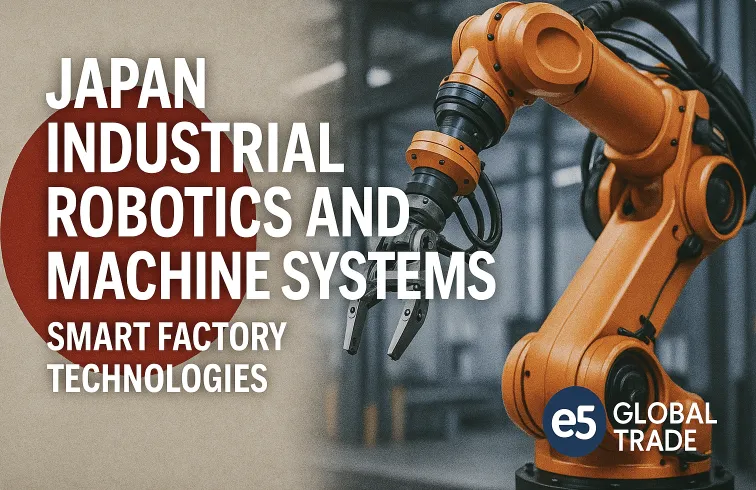Japan's Industrial Robotics and Machine Systems: Smart Factory TechnologiesJapan isn't just a player in industrial robotics and machine systems—it's the game changer. With one of the world's most meticulous engineering cultures, Japan doesn't just use the concept of "smart factory" as a slogan; it lives it in every screw, every line of software, and every production line. In this article, we explain why Japan is a world leader in robotics, how it "smartens" its factories, and why it remains an essential choice for global manufacturers, simply, fluidly, and without technical details—without tables, bullet points, or emojis, in a true "Ali Baba-style" blog style. The biggest difference between Japanese machines isn't their desire to "work flawlessly"—it's their desire to "never stop." A Japanese robot arm's lifespan isn't 10 years, it's 20. And for those 20 years, it operates at the same speed, precision, and energy every day. Because Japanese engineering philosophy dictates, "Being merely functional isn't enough—it must be flawless." That's why giants like Fanuc, Yaskawa, Kawasaki Heavy Industries, Mitsubishi Electric, and Keyence sell not just machines but also "production safety." In Japan, a factory isn't just a collection of machines—it's thought of as an organism. Every machine communicates with every other machine. Every robot instantly reports production data to the central office. Every sensor anticipates a malfunction and issues a warning. This system is called "Monozukuri" in Japan—the "art of making." Here, production is an art. And the rules of art are meticulousness, simplicity, and continuity. Japan's global market share in industrial robotics is over 50 percent. One in every two industrial robots in the world is a Japanese brand. This percentage is even higher in the automotive sector. In the factories of giants like Toyota, Honda, and Nissan, there are lines where robots, not humans, perform labor. But Japanese robots don't just weld cars or screw things together—they insert microchips, polish surgical implants, and solder electronic circuits. Their precision is at the micron level. When it comes to smart factory technologies, Japan has so intertwined artificial intelligence, cloud computing, and IoT with production that the concept of "machine malfunction" is practically a thing of the past. For example, Fanuc's "FIELD System" collects and analyzes data from all equipment in a factory and predicts when which machine will need maintenance. This reduces downtime to zero and maximizes efficiency. Another major advantage of Japan is its "compact and modular" design approach. For businesses with limited space on the factory floor, Japanese machines offer solutions that pack maximum performance into a small footprint. Small and medium-sized businesses, in particular, can compete with large factories with Japanese systems because Japanese machines are scalable. As your business grows, you can add new robots and modules to your system—no need to invest from scratch. What about the price? Yes, Japanese machines aren't cheap. But "cheap" isn't in the vocabulary of Japanese manufacturers—it's all about "long-term profit." Purchasing a Japanese robot arm means making a 10-year investment. Maintenance costs are low, failure rates are low, and productivity is high. Therefore, when the total cost is calculated, it's often more economical than Chinese or even some European alternatives. After-sales support is also a key feature of Japanese manufacturers. Spare parts warranty, local service network, technical training, and even remote diagnostic systems for some brands ensure customer satisfaction. Japanese brands, in particular, have a very strong service network in the Asian and North American markets. In the event of a malfunction, a technician or engineer can be on-site within a few days. Looking to the future, Japan's goal isn't "unmanned factories"—it's "factories operating with human-robot collaboration." In other words, it's not full automation, but production models that combine human creativity with robot precision. That's why Japan is also a pioneer in "collaborative robots" (cobots). Lightweight and flexible robots that work safely in the same space as humans are now the new stars of Japanese brands. In short, Japan isn't just exporting production equipment with its industrial robotics and machinery systems—it's exporting a philosophy, a culture, and a sense of trust. Every manufacturer looking for a smart factory must, at some point, look at Japanese catalogs. Because they know: Japanese machinery is more than just a product—it's the epitome of continuity, quality, and quiet discipline.
E5 Global Trade | Yazılar
Japan Industrial Robotics and Machine Systems: Smart Factory Technologies


